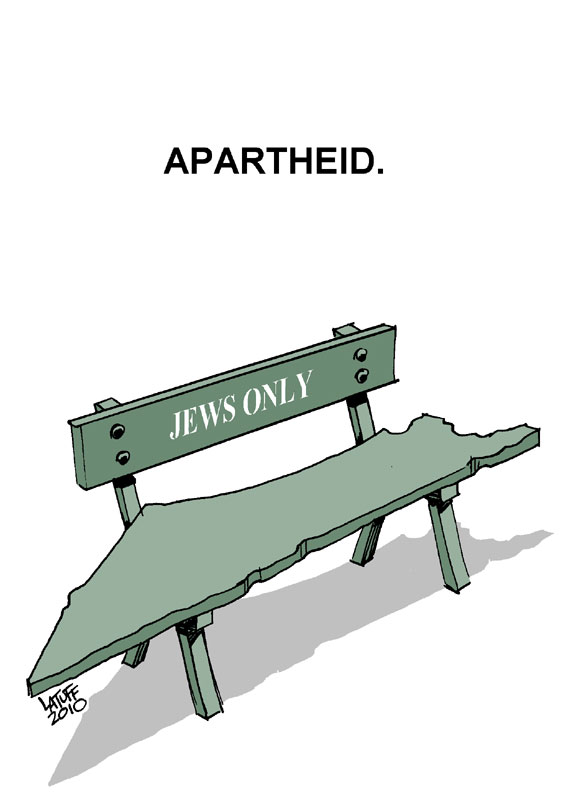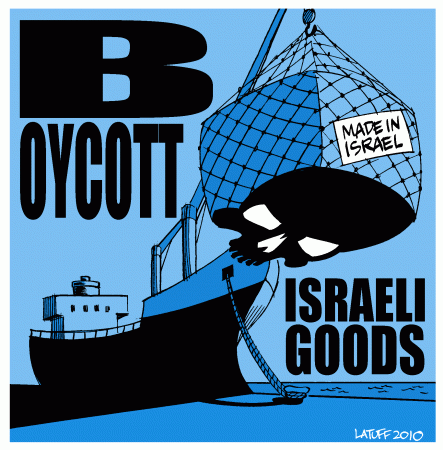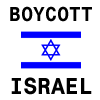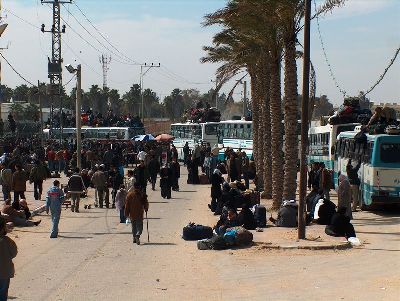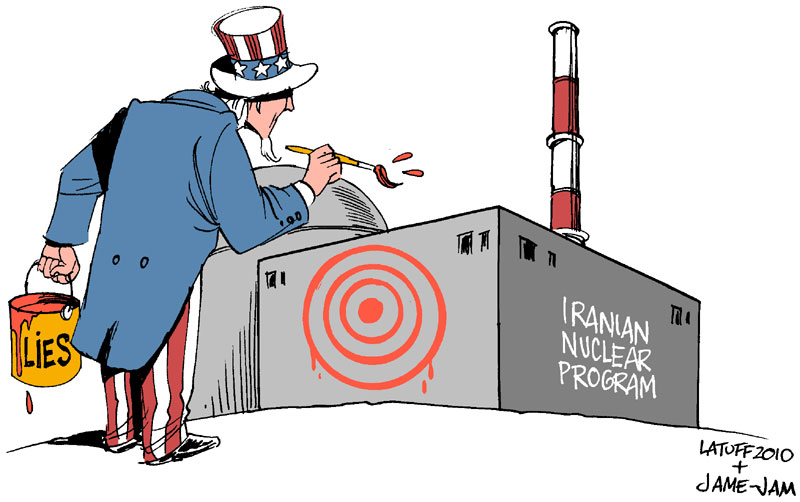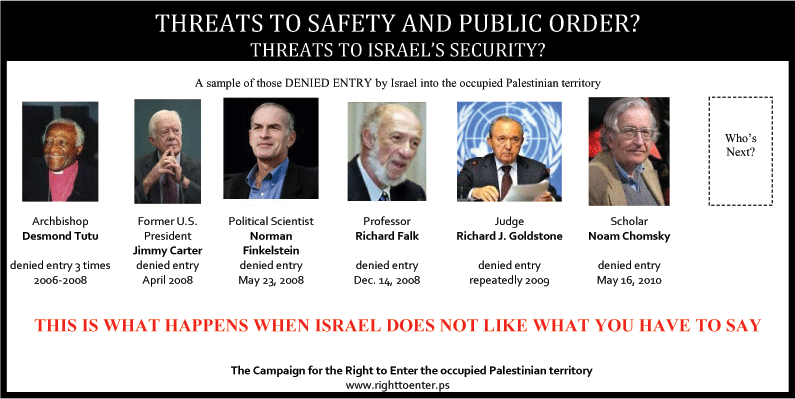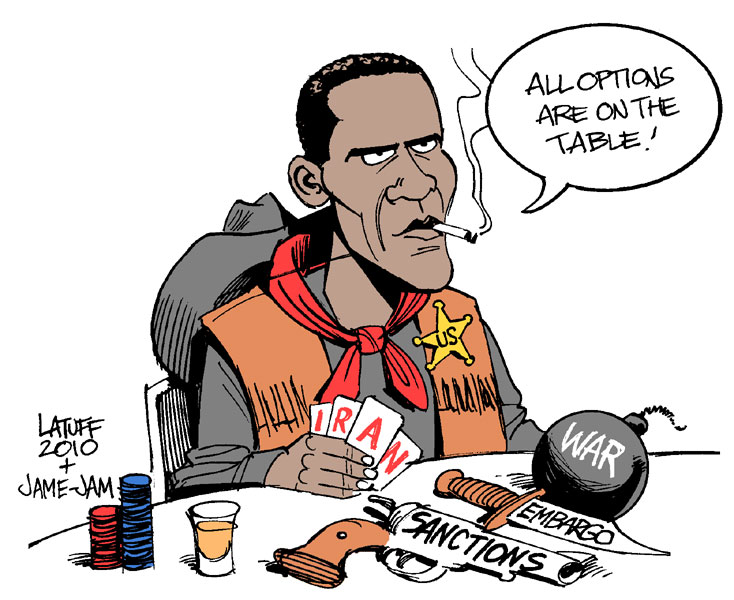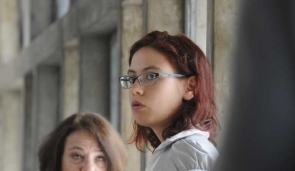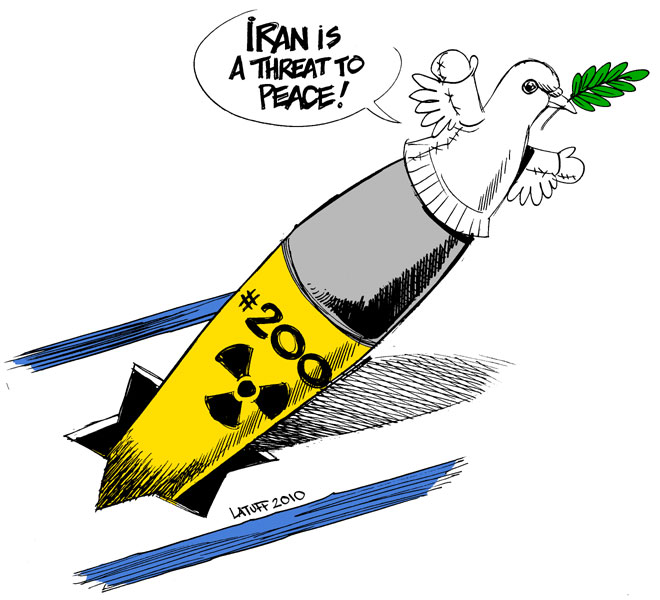
EDITOR: The Ostrich Strategy
It works. Try it, if you don’t believe me – stick your head deep into the hot sand, and the world and its strife disappear. So it is no wonder Israel has taken to this ploy, when the story of Nuclear Apartheid has come out yesterday. Even the quality daily Haaretz is playing it cool, and relegates this story to the ‘dog with three eyes’ pages. If only it was that easy to make reality disappear… this story will stick to Peres the war-monger like dog-shit to a drunk. Despite this, try and find this story on the BBC. Or in the US papers. Or in the Israeli ones. Good luck!
Life, of course, is unfair, as we all know. The Dubai affair is hardly forgotten, and they are hit with the Anat Kamm saga; This has hardly started when the gag on the arrest of the rights activists Makhoul and Said is broken. Hardly di anybody time to relax, and this Nuclear Apartheid Brotherhood (NAB) is exploded upon them. When isa Zionism to have a break?
No, they can’t. From now on, the lethal radiation of nuclear apartheid will stick to them, will announce them everywhere.
Israel’s nuclear weapons: Time to come clean: The Guardian
Israel must abandon its obfuscations on nuclear weapons to move towards a true nuclear settlement in the Middle East
Tuesday 25 May 2010
Israel has long based its security policy on the preservation of its monopoly of nuclear weapons in the Middle East. It seems to regard this monopoly as an entitlement so self-evident as to need no examination, whether at home or abroad, and has invented a doctrine of ambiguity, under which it neither denies nor confirms its nuclear status, as a means of preventing, or at least staying aloof from, any discussion. Among the many matters which Israel has concealed, documents suggest, was a readiness to consider the transfer of nuclear weapons to apartheid South Africa, something at variance with Israel’s insistence that it has always been a responsible state.
But the great value of the research into the dealings between Israel and South Africa which the Guardian has published this week is not simply that it puts on the record that Israel does indeed have nuclear weapons, nor that it might in the past have thought about handing such weapons to another state, but that it allows us to get beyond the “do they or don’t they?” questions to look at the fundamentals of both Israeli and American policy. In the negotiations this month on the nuclear non-proliferation treaty, the United States has shown some flexibility in the face of demands from states who want progress toward a nuclear-free zone in the Middle East, progress which would at some stage have to include a clear Israeli acknowledgment of its nuclear weapons holdings and some degree of readiness to discuss safeguards, such as signing the non-proliferation treaty, as well as a clarification of Iran’s nuclear ambitions.
Israel, on the other hand, has been angered by these pressures, with prime minister Binyamin Netanyahu cancelling a visit to Washington earlier this month to avoid having to deal with them. Whether the other Middle Eastern states actually believe a nuclear-free region is attainable is unclear, but what most do believe is that highlighting and questioning Israel’s nuclear monopoly is worth doing in itself, and that it might also alter for the better the context in which negotiations with Iran take place.
Both America and Israel believe that Israel should retain its nuclear weapons while Iran should not be allowed to acquire them. With the Brazilian and Turkish scheme for the transfer of nuclear material spurned and tougher UN sanctions against Iran on the way, this is an unexamined contradiction which undermines much Middle Eastern diplomacy and cannot be for ever skirted. It is impossible to imagine even the first steps towards a true nuclear settlement in the Middle East without Israel abandoning its obfuscations on nuclear weapons and admitting, as other nuclear powers do, that security is a collective as well as an individual matter.
Turkey to Israel: Lift blockade of Gaza: Haaretz
Israel warns it would block a fleet of nine ships carrying some 700 international pro-Palestinian activists and humanitarian supplies from reaching Gaza.
Turkey urged Israel on Tuesday to lift its blockade of Gaza and allow a Turkish-led convoy of ships carrying humanitarian aid to enter the Hamas-controlled enclave.
Israel and Egypt closed Gaza’s borders after Hamas took control of the territory in 2007 and refused to forswear violence against the Jewish state. Gaza’s 1.5 million people face shortages of water and medicine.
An international flotilla carrying some 10,000 tons of medical equipment, housing material and other supplies is expected to reach Israeli waters by Friday, according to a Turkey-based humanitarian aid group leading the effort.
Speaking to reporters at a news conference during a UN meeting on the Israeli-Palestinian peace process, Turkish Foreign Minister Ahmet Davutoglu said his government had been in touch with Israel about the aid convoy.
“Acting calmly is necessary rather than raising already heightened tensions,” he said. “The blockade on Gaza should be lifted.”
He added: “We don’t want new tensions … We believe Israel will use common sense towards this civilian initiative.”
The Israeli government is under international pressure to relax its blockade, which the United Nations says punishes people in Gaza over the policy of Islamist Hamas, which is pledged to Israel’s destruction.
Israel warned Tuesday that it would block the fleet of nine ships carrying some 700 international pro-Palestinian activists.
A similar, but smaller, aid flotilla was prevented by Israeli authorities a year ago. Five others have made it to Gaza in recent years.
Israel argues the blockade is necessary to keep violent elements in the Gaza Strip from rearming themselves with the tools to shoot rockets into Israel.
Israeli media reported authorities saying the ships would be boarded before they could reach Gaza. Any activists on board would be arrested.
Israeli authorities have urged the convoy’s organizers to bring their goods to Gaza via a pre-approved border crossing. Organizers have said no such offer has been made.
“Ships that make their own way to Gaza don’t do anything to help the people there,” said Yigal Palmor, a spokesman for the Israeli Foreign Ministry.
Palmor said Free Gaza is “less interested in bringing help, than with advancing their radical agenda, which plays into the hands of Hamas.”
Turkey, the only Muslim member of NATO, is one of Israel’s closest allies in the Middle East but relations have soured, in part due to Prime Minister Tayyip Erdogan’s frequent criticism of the Jewish state’s Palestinian policies.
Robert Serry, the UN’s special co-ordinator for the Middle East peace process, said the blockade could only embolden militants.
“I am particularly concerned that the current closure creates unacceptable suffering, hurts forces of moderation and empowers extremists. I call for the closure policy to end,” said Serry, who also serves as UN Secretary-General Ban Ki Moon’s representative to the Palestinian Territories.
The convoy, organized by the Istanbul-based Foundation for Human Rights and Freedoms and Humanitarian Relief (IHH), includes vessels from Britain, Greece, Algeria, Kuwait, Malaysia and Ireland.
It is carrying some 20 million euros worth of supplies, making it the largest ever to the Palestinian Territories, Salih Bilici, spokesman for the pro-Palestinian IHH, told Reuters.
“Part of this mission is to draw attention to the suffering of the people of Gaza,” Bilici said. “We are not concerned that our safety is at risk, because we are a humanitarian group without political aims.”
The group is determined to deliver the aid directly to Gaza, rather than leaving it with Israeli authorities, Bilici said.
Donald Macintyre: Revelations will not make Israel give up its policy of ambiguity: The Independent
Tuesday, 25 May 2010
Revelations in Sasha Polakow-Suransky’s book that talks between Israel and South Africa on the sale of missiles and warheads took place a generation ago have turned a harsh new spotlight on Israel’s long-held policy of ambiguity over its nuclear arsenal.
But while they come just as Israel faces renewed pressure to come clean about its status as a nuclear military power at the Nuclear Non-Proliferation Treaty review conference in New York it would be a mistake to think that the game is yet up for that policy, which still enjoys wide, if not unanimous, acceptance in Israel itself.
Reaction in Israel suggests a media willingness to accept the denial by Shimon Peres, now the country’s President, that Israel was trying to sell nuclear weapons to South Africa – and in the process arguably obscuring the undeniable – and to many abroad – highly embarrassing fact of the shadowy links between the two governments at the time.
Israeli journalists routinely refer archly to “foreign reports” that the country has long had a nuclear arsenal. In a recent such article, the prominent Haaretz columnist Ari Shavit articulated the views of many when he defended “the umbrella of opacity” protecting Israel. He argued that in the past at least the world – being then “moral rather than moralistic” – knew that having seen a third of Jews murdered in the Holocaust it could not do so again; and that it recognised that since Israel as a nuclear power had acted with “deliberation and composure” its nuclear reactor at Dimona had “stabilised the Middle East” by preventing Israel’s many wars turning into an all out “catastrophe”.
Yet the world was not always so sure. A fascinating article three years ago, in the Bulletin of the Atomic Scientists revealed how Richard Nixon overcame the severe doubts of many in the US administration – shared by Nixon’s predecessors Kennedy and Johnson – to allow Israel to proceed with its secret nuclear weapons programme. His own Defence Secretary, Melvin Laird, fearing among much else that it would encourage proliferation, warned him bluntly in March 1969 that the programme was “not in the US’s interests and should… be stopped”. Yet the deal under which Israel could proceed without admitting it was doing so was struck that September at a one-to-one meeting between Nixon and the then Israeli prime minister Golda Meir, the exact details of which can only be guessed at till this day.
The authors concluded by arguing that it was time to revise the Nixon-Meir accord, which was “burdensome for the US not only because it is inconsistent with US values of openness and accountability but also because it provokes claims about double standards in its non-proliferation policy”. And it pointed out that without open acknowledgement by Israel of its nuclear status it was impossible to include it in an updated NPT agreement, let alone discuss ideas like a nuclear-free Middle East.
There has long been speculation that Israel observed, if not jointly organised with South Africa, a test of a nuclear weapon in 1979. Perversely, that might have provided a motive for close military ties with the apartheid regime, since Israel’s agreement not to test a weapon was part of its accord with the US.
But either way, and even if Yitzhak Rabin, prime minister at the time of Mr Peres’s 1975 talks with PW Botha would not have signed off on a nuclear arms sale, the meetings reinforce the sense of a bond in those years between the governments of Israel and that of South Africa – whose apartheid regime Israel had rightly and roundly condemned in its early years. It was a dark period in Israel’s foreign relations which it would do well now to acknowledge and disavow.
It’s not too late for Israel to make peace: Haaretz
The current government, which has the required majority, can translate past military triumphs into a solution to the Mideast conflict.
By Yoel Marcus
Same old song for 18 years
Maybe it’s a coincidence, but the day on which the massive Home Front drill began marked the 10th anniversary of Israel’s hasty retreat from Lebanon, after 1,216 fatalities and a bitter taste of failure. That wretched war had many names, but most of all it was called “the war of deceit,” because the cabinet was led astray. Those who led us to war promised a 48-hour operation but ended up going all the way to Beirut. The war, in its different phases, lasted 18 years.
High school graduates destined to serve in Lebanon composed the most cynical war song ever heard in Israel’s wars – “come down airplane, take us to Lebanon, we’ll fight for Sharon and return in a coffin.”
The generals at the time turned the supposedly brief operation into an ongoing campaign. The excuse for going to war was the assassination of our ambassador in London, Shlomo Argov, by an agent of Abu Nidal’s. When Chief of Staff Rafael Eitan was told that Abu Nidal not only didn’t belong to the PLO, which was based in Lebanon at the time, but didn’t work for the PLO either – he responded at the cabinet session: “Abu Nidal, Abu Shmidal, we’ve got to screw the PLO.”
As time went by the voices calling for getting out of Lebanon grew stronger. It was reminiscent of a story Pinhas Sapir once told. His son returned home on Saturday all bruised. He said he had played soccer and someone kicked him in the face. Sapir replied: “I didn’t ask you why you were bruised, but why you were there at all.”
What happened to us in Lebanon was similar to our experience in Operation Cast Lead in Gaza. We were accused of the Sabra and Chatila massacre, which the whole world denounced. No prime minister and no chief of staff dared to suggest getting out of Lebanon, even when it was clear that instead of the PLO we had gotten Hezbollah.
Ehud Barak was the only prime minister who had the required moral fortitude and strength to do what all his predecessors did not dare to – evacuate Lebanon overnight, contrary to senior officers’ opinions. One of those officers, Chief of Staff Shaul Mofaz, said in closed meetings that a slapdash withdrawal would harm Israel’s deterrent power.
Barak submitted the proposal to the cabinet and secured its approval for immediate implementation that night. The pictures of retreat and abandoning some of the SLA combatants and part of the weapons were not flattering. The other side of the fence became a tourist attraction to various Israel-haters, who came to throw stones at the fence.
To this day the IDF’s nocturnal desertion remains controversial. Opponents say the rushed exit did not prevent the Second Lebanon War, which brought the long-range missile threat to the heart of Israel’s Home Front.
The extreme right wing still holds that flight from Lebanon responsible for Hezbollah’s increased power and its threat on Israel’s soft underbelly. Nobody wants to see the convoy of civilians fleeing from the center of the country southward again. Some Palestinians say that a dramatic flight like the exit from Lebanon could happen from the territories as well one day.
Not realistic, you say? Didn’t Arik Sharon evacuate the Gaza Strip settlements? If he did so, as he explained, to wake the people up from the Greater Land of Israel dream, he didn’t altogether succeed. On the contrary, he strengthened Hamas, which intensified the Qassam rocket fire and dragged us into another war, Operation Cast Lead, which blemished our image in the world and did nothing to speed up an agreement with the Palestinians.
The lesson to be learned from this is that a military triumph does not necessarily lead to a decisive diplomatic outcome. History teaches that in the absence of a decisive diplomatic outcome, the next war is written on the wall. The First World War and the oppression of defeated Germany generated the Second World War. The Six-Day War was brilliant from the military standpoint, but in the absence of a peace agreement, it generated the Yom Kippur War.
Sadat never dreamed of conquering Israel, but aimed at reaching an agreement with it. Fortunately for him and for us, the U.S. administration had at the time people like Richard Nixon, Gerald Ford and Henry Kissinger in it, who put an end to the Vietnam War, opened a door to the People’s Republic of China and cracked a window to peace with Egypt.
The conclusion is that even if 43 years have elapsed since the Six-Day War victory, it is not too late for this government, which also has the required majority, to translate that military triumph into a peace agreement.
Israel revelations resonate in global talks on establishing WMD-free zone: The Guardian
UN conference aimed at international non-proliferation is reportedly close to agreement
Julian Borger, diplomatic editor
Monday 24 May 2010 21.00 BST
Israel’s nuclear dealings with the apartheid regime in South Africa date back more than three decades but they continue to resonate in global talks in New York this week.
A UN conference aimed at bolstering and modernising the international non-proliferation regime is reportedly close to an agreement on measures aimed at a ban on nuclear and other weapons of mass destruction in the Middle East.
Those measures would include the calling of a conference on establishing a WMD-free zone by 2012, potentially involving Israel and Iran, and leading to further steps to provide mutual security guarantees if all parties agreed. A co-ordinator would be appointed by the UN to arrange that conference.
If the drafts circulating at the Nuclear Non-Proliferation Treaty (NPT) review conference are approved by the end of the week, it would mark a significant victory for Egypt and other Arab states who have long argued that Israel has not been subjected to the same pressure as Iran or Syria, despite its development of a secret nuclear arsenal. “Agreement on this issue is in sight. “Even in the whole conference does not agree on an action plan, the P5 [five permanent security council members] and the Arab states would continue to work on it,” said Daryl Kimball, head of the Arms Control Association. “The Guardian’s report about discussions between Israel and South Africa regarding nuclear [weapons] further reinforces the fact that Israel is outside the NPT and possesses nuclear weapons.
“The calls from other countries in the region, that Israel join the NPT, become all the more legitimate when such documentary evidence becomes available, and the steps being pursued at the NPT conference for pursuing a WMD-free zone become more relevant.”
Israel is not a signatory to the 1968 NPT agreement, and is not taking part in the negotiations. But according to sources at the conference, the Obama administration held high-level discussions with Israel at the weekend to persuade it to go along with plans for the 2012 conference, on the understanding it would not be compromising its security. Although the apartheid regime is long dead, and its nemesis, the ANC, is in office, there are unanswered questions about the South African weapons programme. Documentation and equipment was destroyed before power was passed to a majority-elected government. When officials from the International Atomic Energy Agency (IAEA) were allowed into South Africa in 1993 to inspect the remnants, it was on condition they would not ask what countries had provided assistance. “We asked and we got few answers,” Robert Kelley, of the IAEA, said. “It was like they pulled out an index card and read out a pre-prepared response.”
David Albright, head of the Washington-based Institute for Science and International Security, said: “On the positive side, the fact that Israel stopped doing these illicit black market deals in the 1990s as a result of US pressure, shows that pressure works. We don’t have to worry about Israeli proliferation anymore. What we want to see is that kind of pressure working on countries like Pakistan
“It also shows how critical this kind of assistance is to countries who are seeking to develop nuclear weapons. It shows they really need that help.”
Taking Gaza seriously: Haaretz Editorial
Blockading Gaza has caused nothing but distress. Limiting imports of fruit, vegetables and cement will not succor Gilad Shalit, and the Hamas regime remains strong.
We will soon mark five years since Israel’s disengagement from the Gaza Strip, but Gaza refuses to disengage from Israel. Border incidents continue, Gilad Shalit is still in captivity, and the 1.5 million Palestinians who live beyond the border fence remain under blockade.
Neither Hamas nor Israel is interested in escalating the military conflict, which remains limited to sporadic rocket fire met by air force strikes. The other two issues, Shalit and the blockade, are being dealt with on the level of propaganda and public relations.
Negotiations over a prisoner exchange for Shalit remain stalled. Instead of restarting them with an eye toward reaching a compromise that would bring the abducted soldier home, the Netanyahu government is merely seeking to burnish its image while keeping public pressure to return him in check.
On Sunday, the cabinet decided to support a bill that would toughen prison conditions for Hamas prisoners incarcerated in Israel. The bill addresses the anger felt by many Israelis over the fact that Shalit is held in isolation and kept from receiving visitors, while Hamas inmates can watch television and pursue university studies.
Yet the bill is little more than a distraction from the main issue. It is very doubtful that Hamas – which has made no concessions on Shalit despite the closure, the air strikes and Israel’s offensive in Gaza last year – will give up now just so that its people can watch comedy shows and Al Jazeera. A Haaretz report found that most of the bill’s provisions are immaterial in any case: Prisoners from Gaza have been prevented from receiving family visits for the last three years, and the new law would not change their condition one bit.
The government is handling the blockade the same way: using it as a means of exerting pressure on the Hamas regime and presenting it to the Israeli public as a reasonable response to Shalit’s ongoing captivity. But the closure has resulted in humanitarian distress for much of the population and must be ended. Limiting the import of fruits, vegetables and cement to Gaza does not provide succor to Shalit, and the Hamas regime remains strong.
Yet Jerusalem continues to view the siege simply as a public-relations problem, and is currently readying to intercept the aid fleet of pro-Palestinian activists that is now on its way to protest the closure. Instead of allowing Gazans to rebuild, Israel is setting up a televised confrontation between the navy and unarmed civilians.
Shalit deserves serious negotiations that lead to his release. Residents of Gaza deserve to have their plight eased. Gaza will not disappear, despite the disengagement and the closure. And it warrants more serious treatment from Israel’s government.
Israeli president denies offering nuclear weapons to apartheid South Africa: The Guardian
Shimon Peres dismisses claims relating to secret files but US researcher says denials are disingenuous
Chris McGreal in Washington, Rory McCarthy in Jerusalem and David Smith in Johannesburg
Monday 24 May 2010 23.13 BST
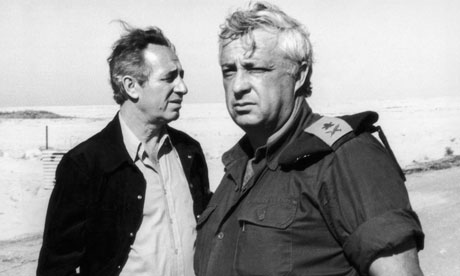
Israel’s president, Shimon Peres, today robustly denied revelations in the Guardian and a new book that he offered to sell nuclear weapons to apartheid South Africa when he was defence minister in the 1970s.
His office said “there exists no basis in reality” for claims based on declassified secret South African documents that he offered nuclear warheads for sale with ballistic missiles to the apartheid regime in 1975. “Israel has never negotiated the exchange of nuclear weapons with South Africa. There exists no Israeli document or Israeli signature on a document that such negotiations took place,” it said.
But Sasha Polakow-Suransky, the American academic who uncovered the documents while researching a book on the military and political relationship between the two countries, said the denials were disingenuous, because the minutes of meetings Peres held with the then South African defence minister, PW Botha, show that the apartheid government believed an explicit offer to provide nuclear warheads had been made.
Polakow-Suransky noted that Peres did not deny attending the meetings at which the purchase of Israeli weapons systems, including ballistic missiles, was discussed. “Peres participated in high level discussions with the South African defence minister and led the South Africans to believe that an offer of nuclear Jerichos was on the table,” he said. “It’s clear from the documentary record that the South Africans perceived that an explicit offer was on the table. Four days later Peres signed a secrecy agreement with PW Botha.”
While Peres’s office said there are no documents with his signature on that mention nuclear weapons, his signature does appear with Botha’s on an agreement governing the broad conduct of the military relationship, including a commitment to keep it secret.
Today politicians and academics in South Africa said the apartheid regime’s cooperation with Israel was an “open secret” and they welcomed the current government’s move to declassify sensitive documents which provided details of key meetings.
Steven Friedman, the director of Centre for the Study of Democracy at Rhodes University and the University of Johannesburg, said: “There was a close cooperation on a range of issues. In the 1970s and 1980s there was a sudden influx of Israeli nuclear scientists. We knew there was extensive military cooperation.”
Professor Willie Esterhuyse, who played a critical role in opening and maintaining dialogue between the apartheid government and the ANC, said: “Most of us knew there was close cooperation on nuclear research with not just Israel but also the French. But we had no factual evidence. We eventually figured out it was more than just rumours, but we never knew the precise details.”
Opposition politicians praised the post-apartheid government for resisting attempts by the Israeli authorities to prevent the documents from becoming public. David Maynier, the shadow defence minister, speculated that the ANC government had decided it would not be damaged by releasing the documents.
“It did not take me entirely by surprise, because I think it was a pretty open secret there was extensive cooperation between South Africa and Israel. But before now the details were super-secret,” he said.
The South African documents obtained by Polakow-Suransky and published in today’s Guardian, include “top secret” South African minutes of meetings between senior officials from the two countries as well as direct negotiations in Zurich between Peres and Botha.
The South African military chief of staff, Lieutenant General RF Armstrong, who attended the meetings, drew up a memo laying out the benefits of South Africa obtaining the Israeli missiles – but only if they were fitted with nuclear weapons.
Polakow-Suransky said the minutes record that at the meeting in Zurich on 4 June 1975, Botha asked Peres about obtaining Jericho missiles, codenamed Chalet, with nuclear warheads.
“Minister Botha expressed interest in a limited number of units of Chalet subject to the correct payload being available,” the minutes said. The document then records that: “Minister Peres said that the correct payload was available in three sizes”.
The use of a euphemism, the “correct payload”, reflects Israeli sensitivity over the nuclear issue. Armstrong’s memorandum makes clear the South Africans were interested in the Jericho missiles solely as a means of delivering nuclear weapons.
The use of euphemisms in a document that otherwise speaks openly about conventional weapons systems also points to the discussion of nuclear weapons.
In the end, South Africa did not buy nuclear warheads from Israel and eventually developed its own atom bomb.
The Israeli authorities tried to prevent South Africa’s post-apartheid government from declassifying the documents.
Peres’s angry response to the revelations is unusual, because of Israel’s policy of maintaining “ambiguity” about whether it possesses nuclear weapons. The Israeli press quoted anonymous government officials challenging the truth of the documents.
Polakow-Suransky said it is possible Peres made the offer without the approval of Israel’s then prime minister, Yitzhak Rabin. “Peres has a long history of conducting his own independent foreign policy. During the 1950s as Israel was building its defence relationship with France, Peres went behind the back of many of his superiors in initiating talks with French defence officials. It would not be surprising if he broached the topic in discussions with South Africa’s defence minister without Rabin’s authorisation,” he said.
Polakow-Suransky’s book, The Unspoken Alliance: Israel’s secret Relationship with Apartheid South Africa, is published in the US on Tuesday.
Politician at heart of Israel
Shimon Peres, the man at centre of allegations over nuclear links with apartheid South Africa, has spent decades in government in various cabinet posts, including defence and foreign, as prime minister and now as Israel’s president.
Born in Poland in 1923, he and his family moved to Palestine under the British mandate when he was 11. Many of his relatives were murdered in the Holocaust.
In 1947, he joined the Haganah, the Jewish force fighting for Israeli independence. He was placed in charge of personnel and arms purchases.
He Peres rose quickly through the political world in the years immediately after independence, becoming Ddirector general, at 30, of the defence ministry. In the following years, he played a leading role in building strategic alliances and developing arms deals. One of the most important early on was with France, which played a crucial role in the development of Israel’s nuclear programme. Later, as relations with Paris cooled, he was at the forefront of building links with apartheid South Africa.
Peres was first elected to the Knesset in 1959. He persistently challenged Yitzhak Rabin for the Labour party leadership, only becoming leader in 1977 after Rabin was forced out over his wife’s illegal foreign bank account. He became the unofficial acting prime minister but lost the subsequent general election.
Peres, as foreign minister, won the Nobel peace prize in 1994 with Rabin and Yasser Arafat for the negotiations that produced the Oslo accords.
After Rabin’s assassination in 1995, he became PM and lost the subsequent election. In 2005, he quit Labour to back Ariel Sharon’s new Kadima party. Two years later, the Knesset elected Peres president. Peres married Sonya Gelman in 1945. They have three children.
Even picnics in Israel are political: The Guardian CiF
Our farewell picnic to Ezra Nawi before his prison term for peaceful protest carried a new message to most Israeli picnics
Neve Gordon
Tuesday 25 May 2010 11.00 BST
Picnics, like almost everything else in Israel, are often political. Oz Shelach underscores this point in his collection of short stories, Picnic Grounds, where he describes how a history professor takes his family on a picnic in the pine forest near Givat Shaul, a Jerusalem neighbourhood.
The professor teaches his son some of the camping skills he learned while serving in the Israeli military, using old stones to block the wind and to protect the newly lit fire. The stones, we are told, are the remains of a village known as Deir Yassin.
Although Shelach does not say as much, Deir Yassin was a Palestinian village located on the outskirts of Jerusalem. The Jewish neighbourhood, which now stands in its place, was built not long after Israeli paramilitary forces evicted its Palestinian residents, massacring an estimated 100 men, women and children out of a total population of 600.
Shelach does not recount this history; he simply describes how the father builds a fire with his son and then ends the story by noting that the history professor “imagined that he and his family were having a picnic, unrelated to the village, enjoying its grounds, outside history”.
Many picnics in Israel take place in pine forests that were planted to cover the remains of hundreds of Palestinian villages destroyed in 1948. Wittingly or unwittingly these gatherings have a political effect, since the people enjoying their leisure time on these sites reenact the historical suppression of the Palestinian Nakba.
This past Saturday I also went on a picnic with my family, but in stark opposition to most Israeli picnics it tried to enact a remembering by exposing the continued domination and expulsion of Palestinians. We joined a group of Jews and Palestinians from Ta’ayush in the south Hebron desert to break bread together and bid farewell to Ezra Nawi, who the following day began serving a jail sentence for resisting Israel’s occupation.
We chose this spot because almost a decade ago the Palestinian cave dwellers who lived there were expelled from their ancestral land by Jewish settlers from Susya; these settlers were supported by the Israeli government, military and courts. Nawi and other Ta’ayush activists have, over the years, aided the expelled Palestinians to return to the last swathe of land they can still call their own. Today there is a small village made up of more than 10 tents, a few caves, several scores of sheep and chicken and a solar and wind-based electricity system.
Located just a few kilometres from where we sat is Um el-Hir, another small Palestinian village where in 2007 Nawi was arrested for protesting against the demolition of a tin shack. While the entire protest was filmed, the border police officers claimed that Nawi attacked them during the few seconds that he ran into the shack and that consequently were not captured on video.
Two points need to be stressed. First, the movie clearly shows how a few minutes earlier Nawi took a rock out of the hands of a Palestinian woman and threw it on the ground so that she would not use it against the police. Second, anyone who is familiar with the Israeli border police knows that if Nawi had actually attacked the officers it is unlikely that he would have been able to walk out of the shack.
Claims like these did not persuade judge Eilata Ziskind, who convicted Nawi. Based solely on the officers’ testimonies, Ziskind sentenced Nawi to a month in jail and an additional three years probation, during which if he is caught insulting an officer, disturbing the public order, participating in an illegal protest, etc, he will immediately be imprisoned for six more months.
This sentence is not a minor matter. The Israeli court has basically decreed that the only legitimate way to oppose the occupation is by standing on the side of the road with some kind of placard. Any form of civil disobedience or direct action, like lying in front of a bulldozer that is building the annexation barrier or demolishing a house, picking olives in a grove or walking Palestinian children to school in an area that has been classified a closed military zone, is now subject to harsh punishment.
Thus, Nawi’s conviction points to a relatively recent development regarding the restriction of resistance, to extremely passive modes of protest. And, in some cases, even these kinds of protests are prohibited, as in Sheikh Jarrah where activists are repeatedly arrested simply for demonstrating against the seizure of Palestinian homes in East Jerusalem.
As Nawi put it during the picnic, in a country where laws are immoral, civil disobedience is obligatory; therefore, he continued, it will not be long before more of you will join me in jail. As he walked away, I looked towards the soldiers who stood gazing at us from a nearby hill, wondering whether soon picnics, too, will be considered acts of civil disobedience.
Dubai passports row / It takes a special talent to turn Australia against Israel: Haaretz
Until the debacle over the assassination of Mahmoud al-Mabhouh, it was hard to find an Australian politician who did not support Israel.
By Amir Oren
Dor Shapira, a young, low-ranking diplomat, had a privilege yesterday normally reserved for ambassadors: a visit to the secretary of his host country’s foreign ministry – albeit not under the best of circumstances.
Shapira, officially the spokesman and cultural attache, is the third-ranking diplomat at Israel’s embassy in the Australian capital of Canberra. Normally, the secretary of Australia’s Department of Foreign Affairs, Dennis Richardson, would have spoken to ambassador Yuval Rotem, but he is in Jerusalem. And consul Eli Yerushalmi is in New York for family reasons. Shapira is the next in line.
Richardson called Shapira to the ministry as Foreign Minister Stephen Smith was informing parliament of the expulsion of an embassy staffer. Smith did not identify the person by either name or occupation. But anyone who recalls Britain’s recent expulsion of an Israeli embassy staffer – the Mossad representative – will know who the person is.
Israel did not know about the expulsion in advance: Smith timed the meeting between Richardson and Shapira so that parliament would hear the news first. When was the last time the Knesset had a similar honor?
Other countries in a new and unofficial alliance – those whose passports were allegedly forged by Israel, meaning Britain, France, Germany and Ireland – were also informed, as was the United Arab Emirates.
It took Richardson only 10 minutes to complete his task. He gave Shapira only the official announcement, with no verbal additions. The atmosphere was also official, leaving no room to misunderstand Australia’s position.
But Smith told reporters that the expulsion of the Mossad man – “or woman” – was not the only step, nor necessarily the last one. There will be a cooling of ties between the two countries’ intelligence services, which may affect intelligence cooperation on Iran’s nuclear program. If there is a third incident of allegedly forged Australian passports (the first was in 2003 ), Australia’s response will be even harsher.
Israel had sought to prevent the expulsion. And when weeks passed after Britain announced its expulsion, the illusion that Australia would forget about the issue, or at least downplay it, grew.
Smith partly explained the delay yesterday. He said that first, the federal police investigated, and concluded that the four Australian-Israelis were innocent victims of identity theft. Then, last month, David Irvine, who heads the Australian Security Intelligence Organization, came to Israel, but Israel said nothing of substance. Finally, all the relevant Australian bodies met and recommended the expulsion.
Despite the Australians’ methodical probe, Israel hastened last night to blame the expulsion on Prime Minister Kevin Rudd, saying he was trying to divert attention from other problems. This is a typical explanation for anyone who refuses to accept responsibility for failure.
Until now, Rudd’s attitude toward Israel has been very positive. Smith, whose constituency in Perth includes 9,000 Jews, is also friendly to Israel, and yesterday, he said that Australia’s support for Israel in the United Nations and other forums will not be affected.
Lately, there have not been any top-tier Australian politicians who were not supportive of Israel. It thus requires special talent to transform Australia into a country that feels obligated to take steps against Israel. Yet one person in Israel has that talent. And this time, it is not Foreign Minister Avigdor Lieberman.
The person who managed to get Israel in trouble with Australia, Britain and the other embittered countries is the head of Mossad, Meir Dagan. But what does Dagan care about Rudd, Smith or Irvine? So long as Prime Minister Benjamin Netanyahu is in his pocket, the world can go to hell. And if it does not do so on its own, Dagan will show it how.
Australia intelligence chief makes secret trip to Israel over Dubai passport forgery: Haaretz
Canberra to expel Mossad rep after investigation reveals that four of the suspects in Mabhouh killing used Australian passports.
Australia announced yesterday that it intends to expel an Israeli diplomat from Canberra as a result of its investigation into the use of forged Australian passports during the alleged assassination of senior Hamas figure Mahmoud al-Mabhouh in Dubai in January.
The head of Australia’s Security and Intelligence Organisation (ASIO ), David Irvine, paid a secret visit to Israel earlier this month as part of an investigation into the use of forged Australian passports. Irvine’s conclusions swayed the government in Canberra to decide that Israel was behind the passport forgery, and yesterday Foreign Minister Stephen Smith told parliament that the Mossad liaison officer in Australia would be asked to leave the country.
An investigation into the Mabhouh assassination revealed that four of the suspects had carried forged Australian passports. Australia initiated an investigation with the participation of the federal police, the relevant ministries and the country’s internal security and intelligence service.
Smith told parliament that police investigators had traveled to Israel from Australia and presented him with a report on the matter on April 9. The police report was not unequivocal as to Israel’s involvement in forging the passports, and the country’s two intelligence services were asked to offer an opinion.
In his report to parliament, Smith said that Irvine was dispatched to Israel for several meetings with senior figures in Israel’s defense establishment. On May 19 a final report was issued by the Australian intelligence services, placing responsibility for the forgeries on Israel. The report concluded that Australian citizens whose passports were forged had not been involved in the assassination of Mabhouh, but had fallen victim to identity theft.
Another conclusion was that the forgery was exceptionally professional and was carried out at a quality level that only a governmental intelligence agency is capable of performing.
After receiving the report, the Australian security cabinet met and approved Foreign Minister Smith’s recommendation to expel the Mossad liaison officer in the country.
Israel’s ambassador to Canberra, Yuval Rotem, was in Israel at the time, so a low-ranking diplomat was invited to the Australian Foreign Ministry, where he was informed that the individual would have to leave the country within a week. Following the decision, Smith informed the foreign ministers of Britain and the United Arab Emirates, as well as those of France, Germany and Ireland, whose passports were also allegedly used during the assassination.
In an unusual act, Australia informed the U.S. administration in advance on the content of its intelligence services’ report and the decision to expel the Mossad liaison officer. Smith explained the action by saying that the U.S. has close ties with Israel and is an ally of Australia.
Speaking to reporters, Smith said that relations between the two countries will enter a “cooling-off period,” and that cooperation on intelligence and defense matters would be limited. He added that the decision was made more with sadness rather than anger, noting that the two countries are friends but Israel’s action was an unfriendly one. The Australian foreign minister said it would be necessary to rebuild confidence and trust.
The Australian announcement was received with shock in Israel, and sources at the Foreign Ministry described it as “a very serious crisis.”
“Israel expresses sadness at this Australian step, which is not in line with the nature and quality of ties between the two countries,” a statement issued by the Foreign Ministry read.
For its part, Australia appears to be seeking to contain the crisis. Smith stressed that the action against Israel affects only the security-intelligence aspect of the mutual relations, and will not alter Australia’s stance toward Israel or the conflict in the Middle East. Smith said that Australia will not stop supporting Israel in UN votes.
Lebanon occupation’s bitter legacy: Al Jazeera online
Ten years ago, Israel’s tanks trundled out of southern Lebanon after keeping a presence there for 20 years, battling both Palestinian and Lebanese fighters.
The withdrawal was welcomed by most Lebanese, but it left the mainly Christian militia, which fought alongside the Israelis, vulnerable to investigation by the Lebanese authorities. Many of them sought refuge in Israel.
Al Jazeera’s Jacky Rowland reports from the Israel-Lebanon border where the legacy of the war has made it dificult for some families to rebuild their lives.
Hezbollah entrenched in Lebanon years after Israel left: BBC
By Natalia Antelava
BBC News, south Lebanon
Every day 70-year-old Abu Ali Shami looks at Israel from his olive grove. The barbed wire, which is only a metre away, reminds him of what life was like when Israeli soldiers were stationed on the Lebanese side of the barbed wire fence.
“We were powerless,” Abu Ali Shami says. “There was so much injustice, if felt like we lived in a big prison.”
Like all residents of Kfar Kila, a village on the Lebanese-Israeli border, Abu Ali Shami still remembers restrictions on travel and the climate of fear, enforced not only by the Israeli military but also their Lebanese collaborators.
“We were so happy when they left,” remembers Abu Ali, another villager in Kfar Kila. “They withdrew in the middle of the night and it felt as if we finally had our country back.”
Ten years on since the withdrawal, the UN together with the Lebanese army patrol the border area. But flapping in the breeze along the fence are yellow and green flags of Hezbollah. Waving next to them is the flag of the group’s biggest foreign backer – Iran.
It is Hezbollah that has real control over what happens in southern Lebanon and many villagers say they like the arrangement.
“It’s the resistance, its weapons and [Hezbollah leader] Hassan Nasrallah who make us feel safe here,” says Fawwaz Mohammed. “Without the resistance we could never be free.”
‘Victories’
Hezbollah is staging a series of events marking the 10th anniversary of the Israeli withdrawal, and what it sees as its victories since then – particularly the most recent war with Israel in 2006. Among them is the opening of a new war museum just a short drive away from the border.
Israel fears stronger Hezbollah 10 years after pull-out
The museum showcases hundreds of pieces of weaponry and equipment. The museum cost more than $3m to build. This was raised, according to Hezbollah, entirely from private donations.
“It’s a commemoration of our fighters, of our martyrdom and also this museum is the way of reminding the new generation about sacrifices that they made,” says the group’s spokesman, Dr Ibrahim Moussawi.
As a guide leads visitors around the museum through an elaborate network of underground tunnels, he describes the battles and the living conditions of the Hezbollah fighters.
Almost all of South Lebanon is riddled with similar bunkers, it is believed that Hezbollah uses them to keep its weapons and train its guerrillas.
But the guide brushes off all questions about the real tunnels: “It’s a secret,” he laughs.
While Hezbollah remains extremely secretive about its military, the museum is in many ways, a sign of just how much the group has evolved over the last 10 years.
Politics and military
Today, it is arguably the most powerful militia in the Middle East and inside Lebanon it also functions as a sophisticated political organisation which has won elections, which has a track record of doing serious social work, and which is clever at marketing itself.
Hezbollah’s growing military might, fuelled by funding from Iran, is a serious concern for Israel and its allies.
Israel and Washington have recently accused Syria of transferring long range scud rockets to Hezbollah. The allegations sparked off a new cycle of mutual accusations, and speculation about another war.
The Lebanese Prime Minister, Saad Hariri, was among those to deny the allegations that there were scud rockets in Lebanon, but Hezbollah never issued a denial.
In fact many in Lebanon believe that the group does have some sort of long-range missile, if only because in some of his recent speeches the group’s leader, Hassan Nasrallah, has threatened to hit targets deep inside Israel.
“I don’t know what kind of rockets Hezbollah has, but what I do know is that Hassan Nasrallah does not make empty threats. Israel knows that, which is why they are worried,” says Beirut-based analyst Rami Khoury.
And yet, despite all the talk of war, tensions and mutual accusations – or partly because of it all – the situation, Rami Khoury believes, is currently under control.
“What we have now is a situation of quite good mutual deterrence. Nobody is going to give up or surrender to the other side. At the same time, both sides know that if they start a war, it will be ferocious and it will kill many civilians,” says Rami Khoury.
Who says Jews and racism don’t go together?: Haaretz
Those who are celebrating disclosures about Richard Goldstone’s relationship with apartheid-era South Africa ought to read a new book about Israel’s ties with that regime.
By Akiva Eldar
The “sexy” story of the nuclear dealings between Israel and South Africa, as told in a new book by Sasha Polakow-Suransky (“The Unspoken Alliance: Israel’s Secret Relationship With Apartheid South Africa” ), diverted attention from the book’s other revelations about the intimate relations between the Jewish state and the racist regime.
The author, a senior editor at the important journal “Foreign Affairs,” noted that Israel was not the only country to have violated the embargo on South Africa. Other members of this dubious club included several “enlightened” nations, among them Arab oil states. But with Israel, the relationship went far beyond security and economic interests and became a sturdy friendship.
Polakow-Suransky relates that in November 1974, Shimon Peres, who at the time was minister of defense in then-prime minister Yitzhak Rabin’s first government, returned from a secret visit to South Africa. Peres wrote to thank his hosts for their contribution to establishing a “vitally important link between the two governments.” Peres continued: “This cooperation is based not only on common interests and on the determination to resist equally our enemies, but also on the unshakeable foundations of our common hatred of injustice and refusal to submit to it.”
This is the same Peres who not long ago said that former South African judge Richard Goldstone is “a small man, devoid of any sense of justice.”
Twelve years later, on a visit to Cameroon, Peres, who was then prime minister, asserted: “A Jew who accepts racism ceases to be a Jew.” And to prevent misunderstandings, he added: “A Jew and racism do not go together.” It was at about that time, Polakow-Suransky wrote, that several of Israel’s most lucrative defense contracts with the white minority regime came into effect.
According to Polakow-Suransky, trade between the two countries – and especially security cooperation – continued to flourish even after Israel’s first unity government decided in 1987 to impose sanctions on South Africa.
Then as now, “security considerations” cast a spell on the media. The author cites an editorial published by Haaretz during the 1973 Yom Kippur War: “No political fastidiousness can justify the difference between one who has been revealed a friend and one who has betrayed friendship in our hour of fate.” The editorial related to South Africa’s decision to provide essential replacement parts for Israel’s Mirage fighter planes at a time when many black African countries that had benefited from Israeli aid programs were cutting ties with Israel.
Those on the right and in the media who are celebrating Goldstone’s relationship with the apartheid regime would do well to read this book attentively.
A question of money
Settlers and their supporters have assailed the Palestinian Authority for having the gall to tell residents of the territories to stop expanding the settlements. To this, the proper response is: Remove the blindfolds from your eyes.
On a rightist Internet site that encourages the use of Jewish labor, Elyakim Levanon, the rabbi of the West Bank settlement of Elon Moreh, wrote: “Here, Arabs do not come in to work. Here, only Jews work.” He reported that in some settlements, this rule is very strictly observed, while in others, it is less so. The rabbi found support for not employing Arabs in the weekly Torah portion and concluded with a practical recommendation: “Perhaps you pay a bit more, but you get quality work. We will be glad to be rid of them.”
But Levanon’s fellow settler rabbis – David Hai Hacohen, David Dudkevitch, Haim Grinshpan and Eliezer Melamed – are not relinquishing Arab labor so easily. They claim that if people at the Har Bracha settlement insisted on employing Jewish workers, the settlement would not expand at the necessary pace of several dozen homes annually.
“When the question arose as to whether to employ Arabs, who perhaps hate us, and continue to build at the necessary pace, or not to employ them and not build at the necessary pace,” wrote these spiritual leaders, a rabbinical ruling was handed down to continue to build with gentile laborers, and when necessary, even with Arabs.
Alongside the general principle of preferring Jewish laborers, the rabbis also addressed the matter of the pay. They considered the question of “whether it is necessary to prefer the Jew in every case, even if his price is double, or is there a definition whereby up to a difference of a certain percentage, the Jew should be preferred, but beyond that percentage, there is no obligation to prefer the Jew?”
In principle, the rabbis answered, “The commandment is incumbent upon the individual [contractor] to seek ways to employ more Jewish workers while advancing his business toward greater efficiency and profitability.”
But until such time as the individual finds a way to fulfill the commandment that workers of your own city take precedence, they leave the responsibility on the state’s doorstep: “In principle, it seems it is the responsibility of the Jewish state to see that every Jew has a respectable living.” Thus as long as the state does not see to providing them with cheap Jewish labor, ruled the rabbis, “it is not possible to impose this obligation on the individual employer, who must compete in the market against competitors who employ far cheaper workers.”
The El Matan outpost
In a column on June 6, 2009, I wrote that work in the vicinity of El Matan was being carried out on private land belonging to the village of Tulat. I want to clarify that the work is being done on state land that is under the jurisdiction of the settlement of Ma’aleh Shomron. It was not my intention to claim that the synagogue there was built on private land belonging to any particular resident of the village of Tulat, and it was certainly not my intention to harm the inhabitants of El Matan.
The term “state land” refers to approximately 1 million dunams that the state has expropriated in the West Bank under a law dating from Ottoman times. A large part of this land was earmarked for building settlements exclusively for Jews.
